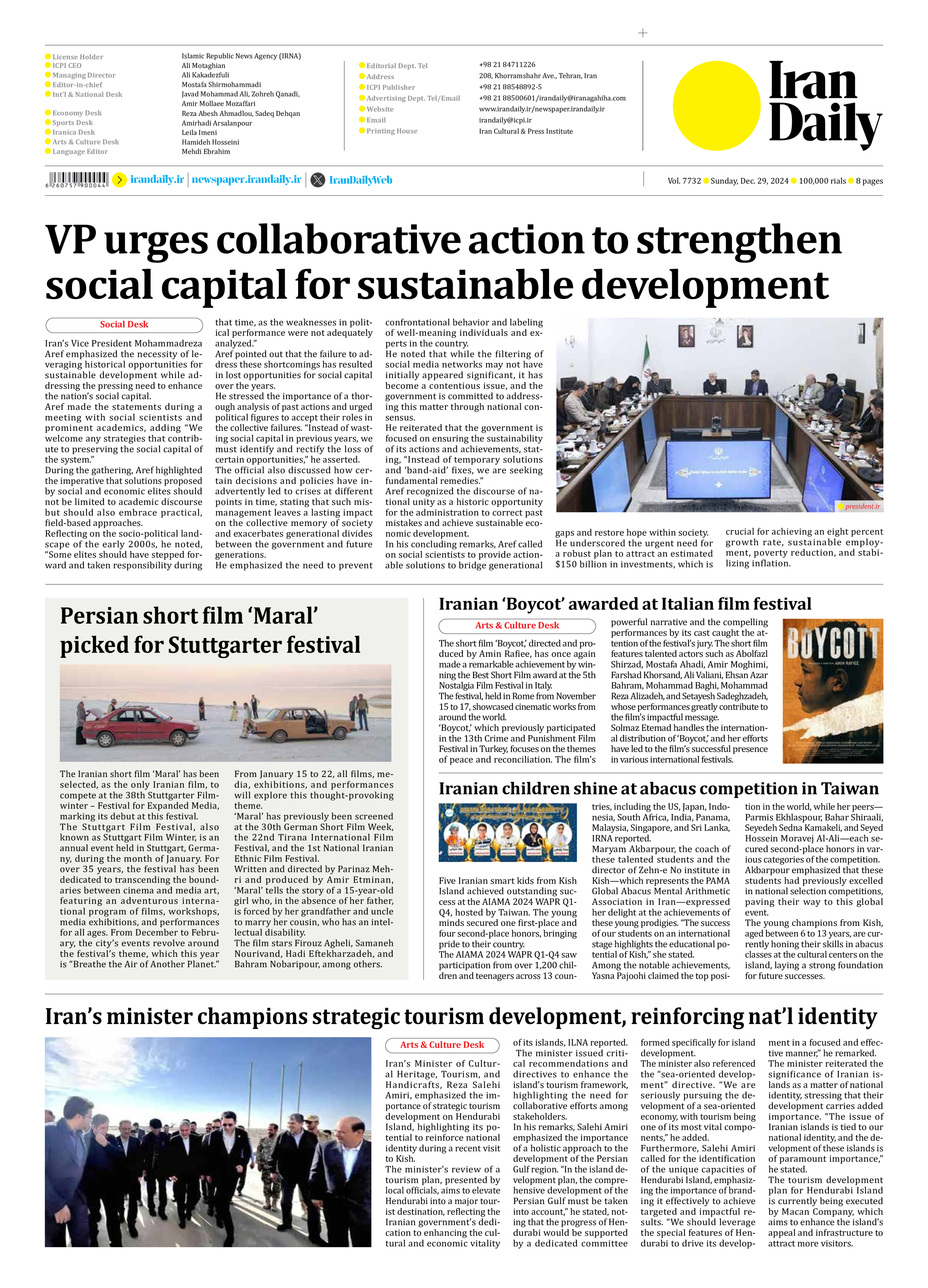
Copy in clipboard...
VP urges collaborative action to strengthen social capital for sustainable development
Iran’s Vice President Mohammadreza Aref emphasized the necessity of leveraging historical opportunities for sustainable development while addressing the pressing need to enhance the nation’s social capital.
Aref made the statements during a meeting with social scientists and prominent academics, adding “We welcome any strategies that contribute to preserving the social capital of the system.”
During the gathering, Aref highlighted the imperative that solutions proposed by social and economic elites should not be limited to academic discourse but should also embrace practical, field-based approaches.
Reflecting on the socio-political landscape of the early 2000s, he noted, “Some elites should have stepped forward and taken responsibility during that time, as the weaknesses in political performance were not adequately analyzed.”
Aref pointed out that the failure to address these shortcomings has resulted in lost opportunities for social capital over the years.
He stressed the importance of a thorough analysis of past actions and urged political figures to accept their roles in the collective failures. “Instead of wasting social capital in previous years, we must identify and rectify the loss of certain opportunities,” he asserted.
The official also discussed how certain decisions and policies have inadvertently led to crises at different points in time, stating that such mismanagement leaves a lasting impact on the collective memory of society and exacerbates generational divides between the government and future generations.
He emphasized the need to prevent confrontational behavior and labeling of well-meaning individuals and experts in the country.
He noted that while the filtering of social media networks may not have initially appeared significant, it has become a contentious issue, and the government is committed to addressing this matter through national consensus.
He reiterated that the government is focused on ensuring the sustainability of its actions and achievements, stating, “Instead of temporary solutions and ‘band-aid’ fixes, we are seeking fundamental remedies.”
Aref recognized the discourse of national unity as a historic opportunity for the administration to correct past mistakes and achieve sustainable economic development.
In his concluding remarks, Aref called on social scientists to provide actionable solutions to bridge generational gaps and restore hope within society.
He underscored the urgent need for a robust plan to attract an estimated $150 billion in investments, which is crucial for achieving an eight percent growth rate, sustainable employment, poverty reduction, and stabilizing inflation.







